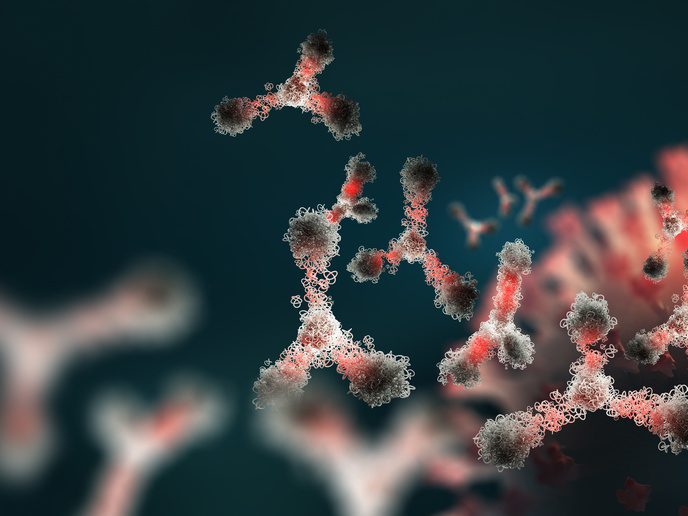The antibodies to beat all coronaviruses
As the coronavirus continues to evolve, the emerging SARS-CoV-2 variants are making vaccines and lab-made antibodies less effective. So how can we produce treatments that are resilient to the virus’ evolution? With this goal in mind, an international research team partly supported by the EU-funded ATAC project set out to determine if the entire coronavirus evolves or if there are in fact parts that do not change. The team hypothesised that some parts of the virus might be forced to remain unchanged in order to be able to function or to maintain a proper structure. To see if this was true, they analysed close to 10.5 million SARS-CoV-2 sequences. As described in the paper published in ‘Science Immunology’, the researchers found that some parts of the virus’ spike protein – the protein that allows the virus to penetrate host cells and cause infection – were highly conserved. “We call these ‘coldspots’,” states study co-lead author Virginia Crivelli of ATAC project partner Institute for Research in Biomedicine (IRB), Switzerland, in a news release posted on ‘EurekAlert!’. According to the PhD student, “most of the virus is rapidly changing, but we discovered 15 regions that do not.”
Discovering the right antibodies
The team’s analysis of samples taken from people recovering from COVID-19 led to the discovery that some individuals had antibodies that were specific to the coldspots. “These antibodies are very rare,” notes study co-lead author Filippo Bianchini, also a PhD student at IRB, “but thanks to a new method, we were able to find them.” The method in question is known as coldspot-guided antibody discovery, a screening approach that focuses on parts of the coronavirus’ spike protein that – as described in the study – “are both functionally relevant and averse to change.”
Blocking and protecting
In the lab experiments conducted, these rare coldspot-specific antibodies were able to block viral infection even by the latest variants of concern. They also provided protection from disease in preclinical models. The question now is whether the newly discovered antibodies will have any effect against SARS-CoV-2 variants and coronaviruses that have yet to appear. “It is likely that new coronaviruses that infect humans will emerge,” observes IRB director and study senior author Dr Davide Robbiani in the same news release. As the researcher goes on to say, “our findings indicate that it may be already possible to develop countermeasures that are broadly effective against present and also future coronaviruses.” The ATAC (Antibody therapy against coronavirus (COVID-19)) project has built on previous experience of SARS- and MERS-CoV antibody therapy to develop passive immunotherapy against COVID-19. Besides providing a human antibody candidate for therapy, ATAC will also rapidly disseminate results to help the medical community respond to the pandemic. For more information, please see: ATAC project website
Keywords
ATAC, antibody, coronavirus, virus, COVID-19, SARS-CoV-2, protein



